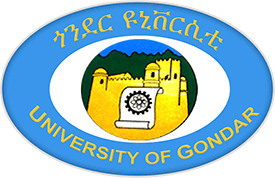 University of Gondar (UoG)
University of Gondar (UoG)

University of Gondar (UoG)
Overview
Sector |
Agriculture, Food and Rural Development, Capacity Building, Education, Gender Equality and Empowerment of Women, Health, Intellectual Property and Patent, Labour, Peace and Development, Population, Private Sector Development, Renewable Energy, Research, Science, Technology & Innovation |
Country |
Ethiopia |
SDG |
01 - No Poverty, 02 - Zero Hunger, 03 - Good Health and Well-being, 04 - Quality Education, 05 - Gender Equality, 08 - Decent Work and Economic Growth, 09 - Industry, Innovation and Infrastructure, 10 - Reduced Inequalities, 13 - Climate Action, 16 - Peace and Justice Strong Institutions, 17 - Partnerships for the Goals |
Organization Type |
Academia / Think Tank |
URL |
https://www.uog.edu.et/ |
Description
Similar Organizations
| Name | Sector | Country | |
|---|---|---|---|
Beijing Foreign Studies University |
Research | China | View Details |
Ankara University |
Research | Türkiye | View Details |
Shandong Knowledge Economy Association |
Development Cooperation, Disaster Risk Reduction, Education, Industrial Development, Research | China | View Details |
University of the South Pacific (USP) Innovation Hub |
Agriculture, Food and Rural Development, Child Development, Commerce, Counter-Terrorism & Prevention of Violent Extremism, Development Cooperation, Disaster Risk Reduction, Education, Financial Services, Gender Equality and Empowerment of Women, Health, Humanitarian Emergencies, Industrial Development, Infrastructure, Intellectual Property and Patent, Labour, Law, Media, Migration, Natural Resource Management, Peace and Development, Postal and Telecommunication Services, Private Sector Development, Procurement, Renewable Energy, Research, Science, Technology & Innovation, SIDS Accelerated Modalities of Action Pathway/ SAMOA Pathway., Sustainability and Environment, Trade, Transport and Aviation, Volunteerism, Water, Youth | Fiji | View Details |
Palestine Polytechnic University |
Development Cooperation, Education, Gender Equality and Empowerment of Women, Industrial Development, Intellectual Property and Patent, Private Sector Development, Renewable Energy, Research, Science, Technology & Innovation, Sustainability and Environment, Water | State of Palestine | View Details |